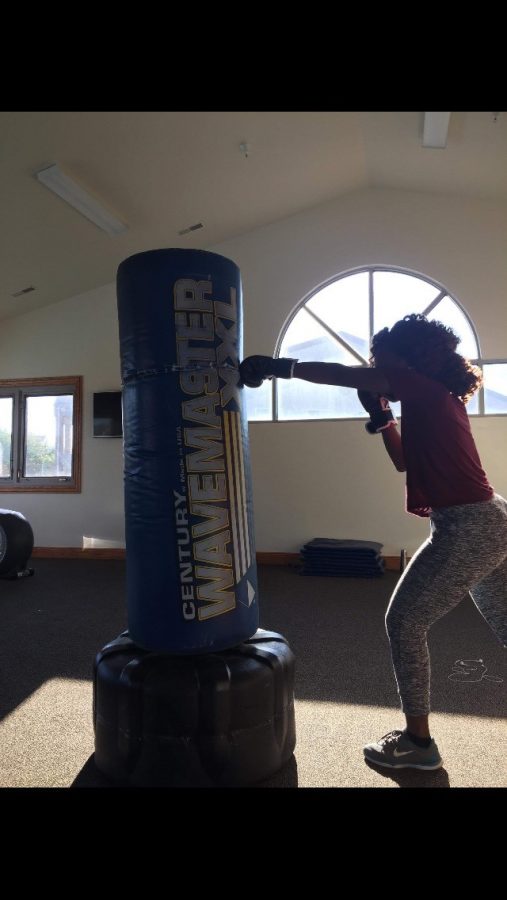MMMA Met with Mixed Reactions
Only days into the semester, Parag Sachdeva started forming Millikin Mixed Martial Arts, a small but exclusive fight club. It wasn’t long before people started to object, calling the club misled at best, dangerous at worst.
Sachdeva, however, affirms that MMMA is not only a good idea, but an important one. This is what outsiders don’t see:
At the moment, the club is small. Only a few people show up to forty-five-minute practices or “meeting times” on Monday, Wednesday, and Friday mornings. The equipment includes a single blue punching bag all the members share and a pair of Sachdeva’s gloves.
The club is off to humble beginnings.
“We’re going to be learning from each other – there’s no trainer,” Sachdeva said. “Of course, I know Muay Thai. I’m going to be helping other people learn how to do it.”
Muay Thai is a form of Thai kickboxing. Sachdeva, originally from India, trained for years with a trainer.
Sachdeva and other members, naturally, spend most of the meetings practicing simple Muay Thai combinations on the punching bag while Sachdeva offers advice about technique, explaining often how each motion can help in a dangerous situation
He finally started the club, after months of consideration, after seeing a friend’s Facebook post about a young woman who was kidnapped and died at a university not long ago. Though before he wanted to start the club to maintain his skill, Sachdeva quickly turned self-defense a priority.
“Even though there are police who should be accountable for such incidents, we can’t make police accountable from our own hands,” Sachdeva said. “If she had known how to fight, there was a good chance that the situation could have been different.”
Sachdeva’s view, to many who see him, break stereotypes.
“I come from the land of Mohatma Ghandi, and we got free from British people with non-violence, so me starting a club of this sort is actually ironic, you know, since we don’t believe in violence,” Sachdeva said. “Having said that, look what’s happening in countries where the general perception is ‘soft’ and ‘timid.’”
Sachdeva solidified his approach when he noticed that many women were expressing more serious interest than men. In the beginning, there was a split: women came for self-defense and many of the men wanted to join just to start fighting.
This is not the approach Sachdeva wanted.
“I don’t want any bad influence coming to the group,” Sachdeva said. “That might sound a little authoritarian, but I want this club in a certain manner. No negative vibes, no negative people.”
Members of the club will not face each other in combat for several months. There are many more steps to take to create a responsible MMA club.
Sachdeva is currently looking for someone that knows more about self-defense tactics, since, he admits, Muay Thai is centered more around attacking than defending. That’s what he wants to do to progress the physical side of the club, but he is also trying to make everyone understand that if someone uses Muay Thai in an irresponsible way, it reflects badly on everyone.
He also suspects that people may get hurt just in practice. He wants members to be prepared for bruising, cuts, and other possible injuries that come from the simplest actions like using a punching bag. Sachdeva himself recently injured his hand.
“This is implied if you’re doing anything that involves combat,” Sachdeva said. “For the people who are going to be taking this in a bad way, are going to be removed right away.”
Sachdeva constantly echoes one sentiment in particular: with great power comes great responsibility. But he wants people to take control.
“My idea is, simply, everyone needs to be stronger inside, because you can’t keep playing victims. At the end of the day, God helps those who help themselves.”

